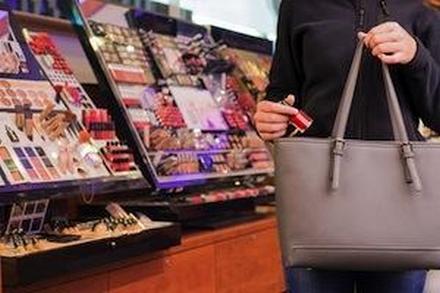TELEPHONES ANSWERED 24 HOURS A DAY
What You Should Know About Retail Theft
 Retail theft is a serious problem in America. No other type of theft, including home burglary, bank robberies, and auto theft, even comes close to the cost of retail theft each year.
Retail theft is a serious problem in America. No other type of theft, including home burglary, bank robberies, and auto theft, even comes close to the cost of retail theft each year.
In 2014, retail theft cost American retailers $44 billion. However, the costs do not stop there. A serious retail theft problem in America means higher costs for all consumers.
Why is Retail Theft a Problem?
Compared to other forms of stealing, retail theft is by far the largest theft-related problem in America. From organized criminals to amateurs sneaking candy bars into their pockets, retailers across America experience retail theft often.
Last year, retailers reported a $44 billion dollar loss due to retail theft. The $44 billion, known as “shrink” in the retail world, includes losses from shoplifting, employee theft, administrative errors, and vendor fraud. No retailer is immune to retail theft.
Thieves target large box store chains, supermarkets, department stores, and local businesses. Not only does this lead to significant losses for retailers, but consumers across the country suffer as well. To account for losses, retailers are forced to raise costs for their customers and put tighter restrictions on their employees. Ultimately, everyone suffers.
Who is Committing Retail Theft?
The two biggest components of retail theft are shoplifting and employee theft. Shoplifters come in many forms. Some are organized criminals who steal products and then sell them. Skilled shoplifters often use aluminum lined ‘booster bags’ to prevent store’s alarm systems from sounding as they steal.
Average people, specifically teenagers and low income individuals, also shoplift quite frequently. However, they are much easier to identify and stop, and are more often stealing out of necessity rather than with the intent of making a profit. Amateur shoplifters are often considered ‘impulse shoplifters’—they steal things they intend to consume immediately.
Aside from shoplifters, employees themselves are the second biggest culprits of retail theft. Experts believe employees steal from workplaces because they feel they are treated poorly or are underpaid. Hence, their theft is often a form of payback or a way to reward themselves for their work. Employees are also more knowledgeable about where cameras and alarm systems are located, and are much more easily able to avoid getting caught when stealing from their own store.
Store employees are also often involved in what is known as “hybrid” or “sweetheart” theft. This is when an acquaintance of a store employee, typically a friend, family member, or loved one, will visit the retailer and appear to pay for his or her goods. In reality, the store employee only pretends to charge the individual for his or her goods, and lets him or her leave. This is hard for retailers to identify—in many cases it appears a transaction has taken place.
What Items Are Being Stolen?
Typically, thieves take items that can be easily concealed in pockets or a bag. Reports indicate that over the counter pain relievers are stolen frequently, along with makeup, batteries, razor blades, and baby formula. Jewelry, cigarettes, and small electronic items are also popular.
What Are Retailers Doing to Stop This?
Retailers employ a variety of tactics to stop retail thieves. Cameras and alarm systems are effective, especially at deterring amateur shoplifters who often get scared when they notice security systems in place and feel like they are going to be caught. High tech equipment is also being installed in stores across the country to make catching shoplifters easier. Cameras are now able to identify when shoplifting occurs and store employees can therefore be immediately notified—these cameras can spot when merchandise goes missing, notifying store managers of the exact time and location of the incident.
To combat employee theft, retailers have limited employee hours and put in place stricter supervision. Additionally, many stores require employees to empty their purses, backpacks, and pockets before leaving each day.
While fortunately, a majority of retailers across the country reported either a decline or a hold in their retail theft numbers, stealing is still a serious problem. Those charged with retail theft can face serious penalties such as misdemeanor or felony charges, fines, and jail time. Being charged with retail theft is very serious, and requires the help of a knowledgeable Chicago criminal defense attorney. At The Law Offices of Hal M. Garfinkel LLC, Chicago Criminal Defense Attorney, our attorneys are qualified to handle even the most serious of criminal cases. Contact our offices at 312-629-0669 to schedule your free consultation with an attorney today.
Sources:
http://www.latimes.com/business/la-fi-qa-hollinger-20150716-story.html




